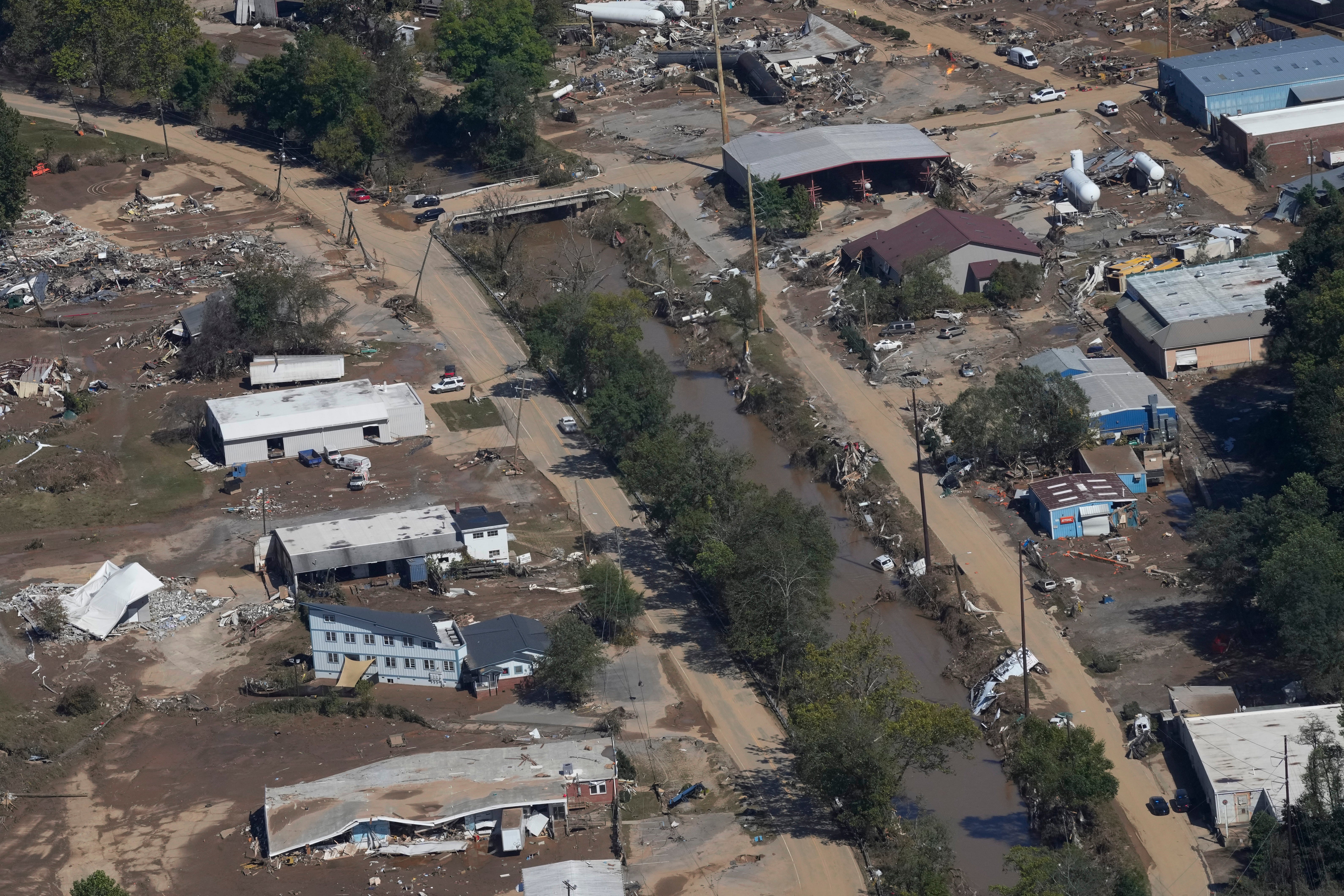A North Carolina man left homeless in the wake of Hurricane Helene was forced to rebury his late father, after his casket was unearthed by the storm.
Chris Griffin, 57, said that the casket had remained above ground for two weeks after surfacing and floating away from its site. His father has been dead for two years.
Helene caused severe flooding and destruction, and a death toll of at least 230, after barrelling across six states, including North Carolina, in late September.
Griffin lives in Garren Creek, a neighborhood in Fairview outside Asheville, where 13 people, including 11 members of the same family, died in mudslides that same morning.
Speaking to Fox News Digital, he described the events of September 27 and how his house, garage and vehicles had disappeared within 20 minutes.
In the early morning hours of September 27, as Hurricane Helene descended over the Appalachian Mountains, Chris Griffin noticed a creek near his North Carolina home was higher than normal.

An hour later, cars were floating past his property in floodwaters, Griffin, 57, told Fox News Digital. “We just barely got out,” he said.
Such was the devastation that Griffin’s father’s grave was exposed. Griffin told Fox that the casket had floated downstream and remained above ground for about two weeks before he and his sons were able to rebury it.
His father’s headstone had also been dislodged, but they returned it to its upright position. “We had to fill it back in, and we got the headstone,” Griffin told the outlet, adding that seeing the damage to his father’s grave was “pretty disturbing.”
Griffin said that he believed he had also lost his dog, who was in the house when water destroyed its foundation and carried it down river. The dog survived and returned to the property the next day.

Griffin was sleeping in a tent on his property for weeks while he worked to clear debris and clean up damage to his property, with assistance from local volunteers. A shed-like building was provided for him his family — including his mother, sister and his sister’s children — to live in while he tries to clear debris from the site.
The Federal Emergency Management Agency (FEMA) said in an October 24 press release that it is “currently offering temporary housing to those in need in 25 counties across western North Carolina that are “tailored to meet each household’s individual needs.”
However the agency notes on its website that setting up such housing “will take time” and is “not intended as an immediate solution for a survivor’s shorter-term housing needs.”




